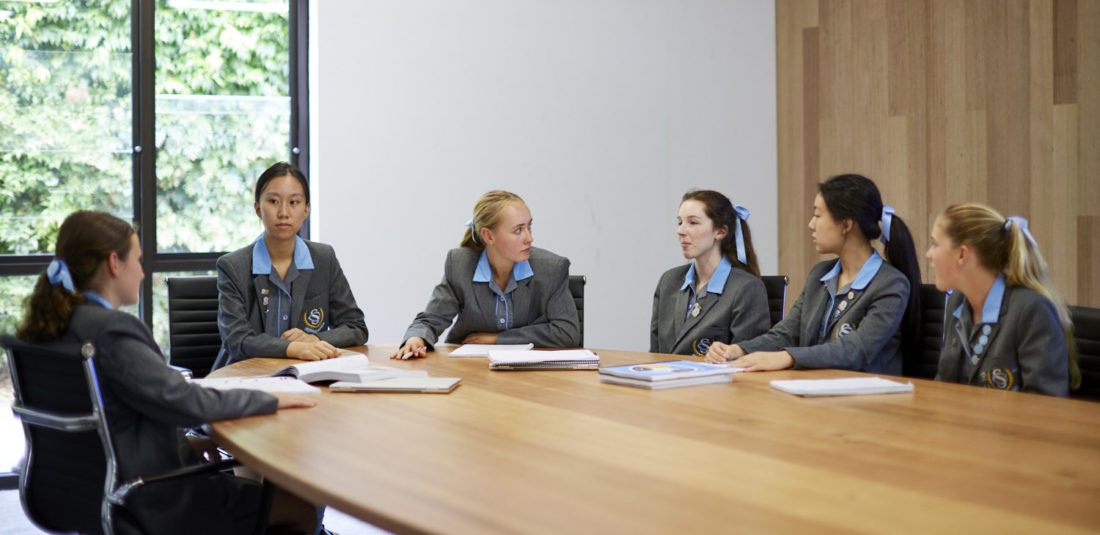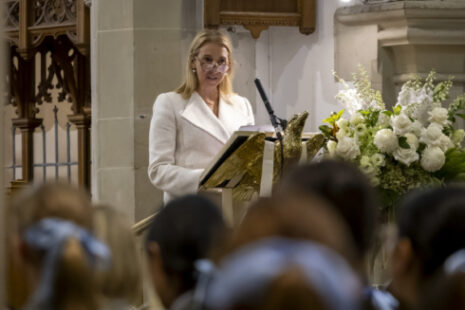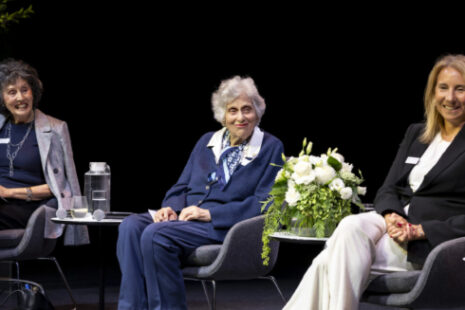Frank Honesty Prevails for Year 9s

Travelling with members of the Year 9 Cohort in Western Australia earlier this semester reaffirmed my enjoyment and engagement with this age group of girls.
Year 9s are a joy to be with. They are buoyed by the opportunity new subject electives provide, their peer ructions that coincided with puberty are behind them and this is an age when girls visibly settle into their own sense of self-worth and emerging agency.
I recall in March 2020, the very early days of the pandemic, when we first commenced conversations about the likelihood that we would be teaching students from home. We wished to trial and assess the capability of our technology platform and so, created our very first Learn@Home day using MS Teams. To garner feedback from students, it was without hesitation that we selected the Year 9 girls as our trial cohort. I recall Mr Marshall at the time saying, “Year 9s will tell you exactly how it is – what works and what doesn’t”.
With Year 9s, their frank honesty always prevails.
This year, our Head of Humanities, Mr Paul Gilby, has led a pilot program with Year 9s, crafting a curriculum that uniquely combines explicit teaching of skills and content with Harkness-inspired methodology. In this new program, Year 9 students speak their mind, listen enthusiastically, tackle the most difficult questions and importantly, hone their critical, creative, and collaborative thinking skills.
Elevating the student voice is identified in our Towards 2025 Strategy as a key component of the Thinking Agenda, now embedded across every St Catherine’s classroom. The Year 9 Humanities ‘Thinking’ lessons are distinguished by teaching and learning that occurs around a singular, oval table – a classroom where every student has an equal place of prominence.
As part of the Year 9 pilot program, Mr Marshall has again undertaken focus groups of the Year 9 girls to ascertain their feedback. Similar to the Year 9 cohort in March of 2020, their frank honesty prevails once more!
Some of the girls’ insights are provided below.
“The shape of the table really helps conversations, you can see everyone, it feels less like school – we need more tables for subjects such as English.”
“It offers a different perspective on things; we can learn off everyone. By sitting around the table, it is easier for other people to help my thinking.”
The Harkness-inspired lessons aim to challenge students to achieve a higher level of engagement, to extract and construct their own meaning from the content, and then share it courageously and articulately with their peers and teachers. When the girls gather around the table, students strengthen their own thoughts while gaining respect for the voices of others.
“I like it. It builds confidence. You are not just sitting there…You have to have a say.”
“The conversations are demanding; it pushes people out of their comfort zone.”
“You have to be more attentive. You have to be involved more and you can’t hide.”
We learned through the recent focus groups, the Harkness-inspired lessons are so much about making the learning come alive for students. With the realisation that the student who is doing the thinking is the student who is doing the learning.
Girls are enabled to see connections between ideas with the opportunity to take what they have learned, apply it, and establish a set of problem-solving skills they can then transfer to their everyday lives. By including pre-reading prior to each lesson, students understand a refined level of accountability along with a deeper understanding of their place in a learning community.
I look forward to observing the Year 9 Cohort’s transition to their senior years of learning in 2023 and importantly to witness their participation in VCE subjects going forward. I trust the realisation that the more they participate, the more they will realise their voices are valued and each have an important role to play in the classroom. In addition, they deepen their appreciation for other students’ voices as also being valuable, as they begin to understand the importance of taking the time to deeply listen to others.
Click on the link below to learn more about our pilot program.






